We’ve long had anecdotal evidence of THC helping Alzheimer’s patients, but now we have several scientific studies on the subject that show evidence that THC has a beneficial effect on Alzheimer’s plaques. THC could be a good treatment option, attacking Alzheimer’s disease in multiple ways.
The first study, titled The Potential Therapeutic Effects of THC on Alzheimer’s Disease was published in 2014 and got little fanfare. This study is behind a paywall, but you can read the abstract details at the link above. Hopefully, the information presented here will be enough to help you decide whether you should study this more thoroughly.
What Causes Alzheimer’s Disease?
Alzheimer’s disease is a neurodegenerative disease that is believed to be caused by the accumulation of amyloid proteins, which cause nerve cell death.
The build-up of these proteins triggers a toxic inflammatory response that begins the process and eventually leads to brain and nerve cell death. Currently, there are no drugs that significantly affect this process.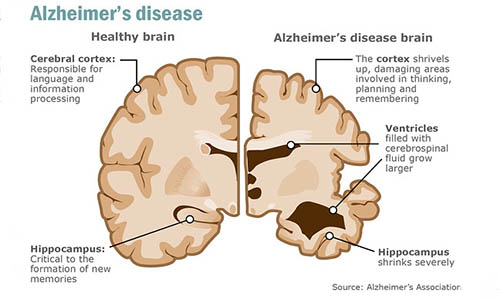
How Does THC Help Alzheimer’s Patients?
In addition to the 2014 study mentioned above, a 2016 study titled Amyloid Proteotoxicity Initiates an Inflammatory Response Blocked by Cannabinoids further tested the effect of THC on the amyloid proteins that build up in Alzheimer’s patients.
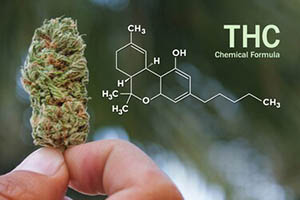
While the exact relationship between the amyloid protein, aging, and neurodegeneration is not well known, the study showed that cannabinoids, such as the tetrahydrocannabinol (THC) found in marijuana plants, stimulates the body to remove the amyloid proteins and block the inflammation. This action protects the brain and nerve cells from further damage.
These amyloid proteins are found in many age-related and in neurodegenerative diseases, such as Parkinson’s and Huntington’s diseases. Unfortunately, the inflammatory response and the amyloid plaques are well developed before the onset of the disease is recognized. One key to preventing these diseases with THC will probably be recognizing the buildup of amyloid proteins and preventing them long before symptoms occur.
Long-term use of cannabinoids in a mice study prevented inflammation of the nerves, lowered the amyloid proteins in the body, and improved memory and cognition. Anecdotal evidence shows that THC is the helpful cannabinoid, not just
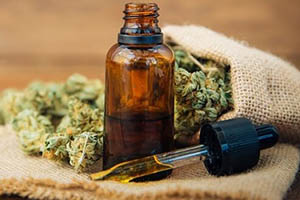
the CBD.
The best method for use is to ingest full extract cannabis oil that contains the additional cannabinoids as well. Use it as an herbal supplement to protect the neurons and rid the brain of the amyloid protein that causes Alzheimer’s disease.
Related: How To Make Moringa Powder (DIY with Pictures)
What Is THC?
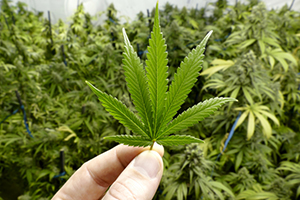 You are probably already familiar with THC and the way it affects the body. THC is the compound in marijuana responsible for the psychological effects, including the high. It has natural pain-relieving properties and is being used quite effectively to alleviate the negative effects of chemotherapy, HIV, chronic pain, PTSD, and even strokes. Researchers are increasingly testing THC for treating many diseases and are working on ways to produce synthetic versions in mass.
You are probably already familiar with THC and the way it affects the body. THC is the compound in marijuana responsible for the psychological effects, including the high. It has natural pain-relieving properties and is being used quite effectively to alleviate the negative effects of chemotherapy, HIV, chronic pain, PTSD, and even strokes. Researchers are increasingly testing THC for treating many diseases and are working on ways to produce synthetic versions in mass.
Our body has special receptors, known as cannabinoid receptors, CB1 and CB2. These receptors are found on the surface of cells all over the body. In the brain, they are concentrated in areas associated with pleasure, memory, coordination, critical thinking, and time perception. Cannabinoids, including THC, bind with lipids in the brain to promote signaling between nerve cells.
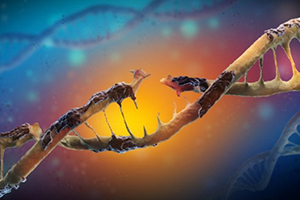 THC binds to these receptors and interferes with the brain’s signaling. This can be a bad thing when it interferes with your ability to perform on the job or think clearly. However, it can also be a good thing, if it restores normal function in damaged nerves or those that have been deprived of cannabinoids.
THC binds to these receptors and interferes with the brain’s signaling. This can be a bad thing when it interferes with your ability to perform on the job or think clearly. However, it can also be a good thing, if it restores normal function in damaged nerves or those that have been deprived of cannabinoids.
While, it is not completely clear what causes Alzheimer’s disease, studies have linked inflammation in the brain tissue to the formation of plaques and neurofibrillary tangles, caused by amyloid proteins. The research shows that THC has a beneficial effect on aging brains by helping to clear out the amyloid proteins that cause brain inflammation, plaques, memory loss, and the effects of aging.
This research is promising for patients suffering from neurodegenerative diseases of any kind. More studies are obviously needed, but results are promising and we may be on our way to an effective treatment for Alzheimer’s, Parkinson’s, Huntington’s, and other neurodegenerative diseases. Currently, big pharma companies are working with similar compounds and synthetic THC to try to find patentable cures.
Related: 6 Kitchen Ingredients That Work Like Medicines
Will THC Reverse Alzheimer’s Disease?
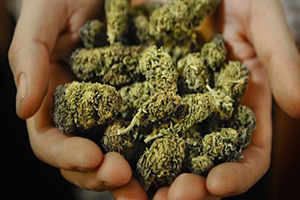 It is far too early to predict where this research will take us. It is possible that at some point in the future we may be able to reverse Alzheimer’s disease.
It is far too early to predict where this research will take us. It is possible that at some point in the future we may be able to reverse Alzheimer’s disease.
Currently, the best results are found in patients who are in the early stages of the disease, before the amyloid plaques and tangles are extensive. The answer may lie in dosages or in catching Alzheimer’s disease before the symptoms even appear.
Additionally, anecdotal evidence suggests that some strains of marijuana may be more effective in treating Alzheimer’s disease than others.
What Do Doctors Say?
 Marijuana treatments are a very controversial topic in the medical field. Some well-respected doctors are recommending THC for their Alzheimer’s patients, while others are concerned about long-term effects and potential addiction.
Marijuana treatments are a very controversial topic in the medical field. Some well-respected doctors are recommending THC for their Alzheimer’s patients, while others are concerned about long-term effects and potential addiction.
As medical marijuana becomes more accepted across the country, we will likely see more research and more information available about its use. If you live in a state that allows medical marijuana, talk to your doctor about its potential use for the treatment of Alzheimer’s. If you want to try THC treatments, you will be able to find supportive doctors who can coordinate your treatments and advise you.
It is important to discuss any herbal product you use with your doctor and THC is no exception. It can interfere or affect other medications that you are taking. Do you know anyone trying THC as a treatment for Alzheimer’s? If so, please give us an update in the comments below.
You may also like:
 What’s the Limit of Your Morality in a Crisis?
What’s the Limit of Your Morality in a Crisis?
Woman with Autoimmune Disease Lives a Normal Life Without Pills (Video)

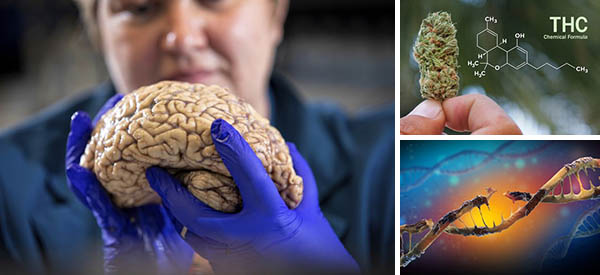













Inasmuch as the only reliable way to detect the aggregation of beta amyloid cells presently is through brain dissection, and inasmuch as the relationship between aggregated beta amyloid cells and impaired brain function is not clearly understood, It seems to me this study rather puts the cart before the horse to use an old Farmer’s Almanac saying.
While studies are underway to see if MRI examination is accurate enough to pre-determine a tendency to Ba cell accumulation, so far studies have been inconclusive.
There is some heartening indication that close examination of the blood vessels of the eye may be a Ba cell accumulation indicator but those studies are far from conclusive so far.
Also, medical professionals don’t know the correlation between Ba cell accumulation and Alzheimers’s.
Assuming there is a direct correlation and the Ba cell accumulation is not just a coincidental phenomenon, there is as yet no reliable way of determining the build-up of Ba cells in the brain short of dissection.
Bottom line: I wouldn’t start toking up just yet in the hopes that my brain won’t clog up and develop Alzheimer’s disease.
As a personal belief, I wonder if there isn’t some connection between the increased use of marijuana and the seemingly epidemic incidence of autism in children and the increased sensitivity to various substances that in earlier days were almost non-existent.
Prior to the 1960s, marijuana use in the U.S. was very minimal. When I started work as a court reporter the majority of the drug cases appearing in court were heroin cases. Although marijuana was a felony offense, it was rarely encountered by law enforcement. The only marijuana conviction I was aware of was Robert Mitchum who was convicted of a misdemeanor offense of possession of marijuana and served time at the LA County Sheriff’s farm.
It wasn’t until the mid 60s that marijuana offenses started appearing on the felony calendar. Those early users are now into second generation users and we start to see more and more cases of “defects” for lack of a better description in children.
That may be a post hoc ergo propter hoc argument, however, I do wonder every time I hear some group or another expounding on the cause of the various problems we are seeing with more frequency in our children. No one mentions increased marijuana use as a possible link. I think it should be examined. Of course, that is not a popular opinion in the current rush to make recreational marijuana use acceptable and to be able to impose a tax on its use for the politicians to waste on their favorite subject — themselves.
I have read some place or another that heavy marijuana use results in disruption of the gene pattern in sperm. I can”t cite chapter and verse of that “some place” and I haven’t bothered to research it for this post so if you want to post a counter argument, I suggest that you do an internet search of marijuana use and gene disruption. If there is a correlation between marijuana use and gene disruption, perhaps we ought to re-think our rush to make general use of marijuana as a recreational product acceptable.
I have no problem with marijuana use for terminal patients with significant pain symptoms. I think the stated fear of them becoming “drug addicts” is a specious argument. We have an 88 year old patient with cancer that every medical expert who has examined the patient agrees is terminal. Why is anyone worried about that patient developing a dependency on pain medication? The thought process there puzzles me no end.
I see that fear of becoming addicted to marijuana use was mentioned in the reference the author of this article cited as the basis for her article. I think that fear is overblown also. Many patients with advanced dementia are frequently agitated and aggressive. If toking a couple of blunts makes them less agitated and calm, is their becoming addicted to the effects of M.J. a real worry? Personally, if I had a relative that had significant agitation and aggression as a manifestation of their dementia, I would be shopping happy grass shops regularly to keep them calm and quiet. I would much rather have Grandma toking a blunt and being dreamy and and on the nod than I would having to restrain her in bed with arm and leg restraints which would only further cause agitation. Or worse, having to wrestle her down while somebody injected a tranq to calm her.
Having spent twenty-five years of my life watching the downward spiral of the war on drugs has only reinforced my original opinion that it was all a waste and as long as the individual didn’t fly my airplane, operate a motor vehicle on public highways, operate on me or do some other act which had a direct or even indirect bearing on my well-being and the well-being of my family, I didn’t really care what he or she smoked, ate, injected, snorted or however else folks who crave those substances manage to get them into their systems.
I am further of the opinion that if the government had spent the money on PSAs about the harm that such substances do to one’s self and one’s family instead of breaking down doors and sending users to prison we would be miles ahead in the campaign against toxic substance abuse.
Well, I will pick up my soapbox and steal away into the night before someone starts throwing mushy tomatoes and beyond-the-best-use-by-date eggs at me.
First off,,autism ,,like many diagnosis,,wasn’t a medical diagnosis awhile ago,,people were just labeled insane,,but ,,,,my late husband was definitely a heavier pot smoker ((3 or 5 joints a day,,every day)). He did have trouble with pressure behind his eyeballs,,he also had low sperm count…I agree that a person such as myself. (( aged,,no longer able to have children,,and a family history of dementia )) ,could benefit from THC I just don’t want to smoke it ,,where does one find oil?
Yes…. But I have personally used it
My mother is 93 and improving in all areas of her health.
Most notable is her mental health and her cognitive improvement.
Don’t listen to the Blah blah …blah!!!
Try it and find out , why Big $$ doesn’t want you to believe, in the easy and cheap treatment that you can do , to battle age related illnesses.
And of course many more…
Open your minds and read the research, then try it yourselves. No side effects just amazing results.
Where can a person get this oil??
Marijuana isn’t addictive.
thank you so much